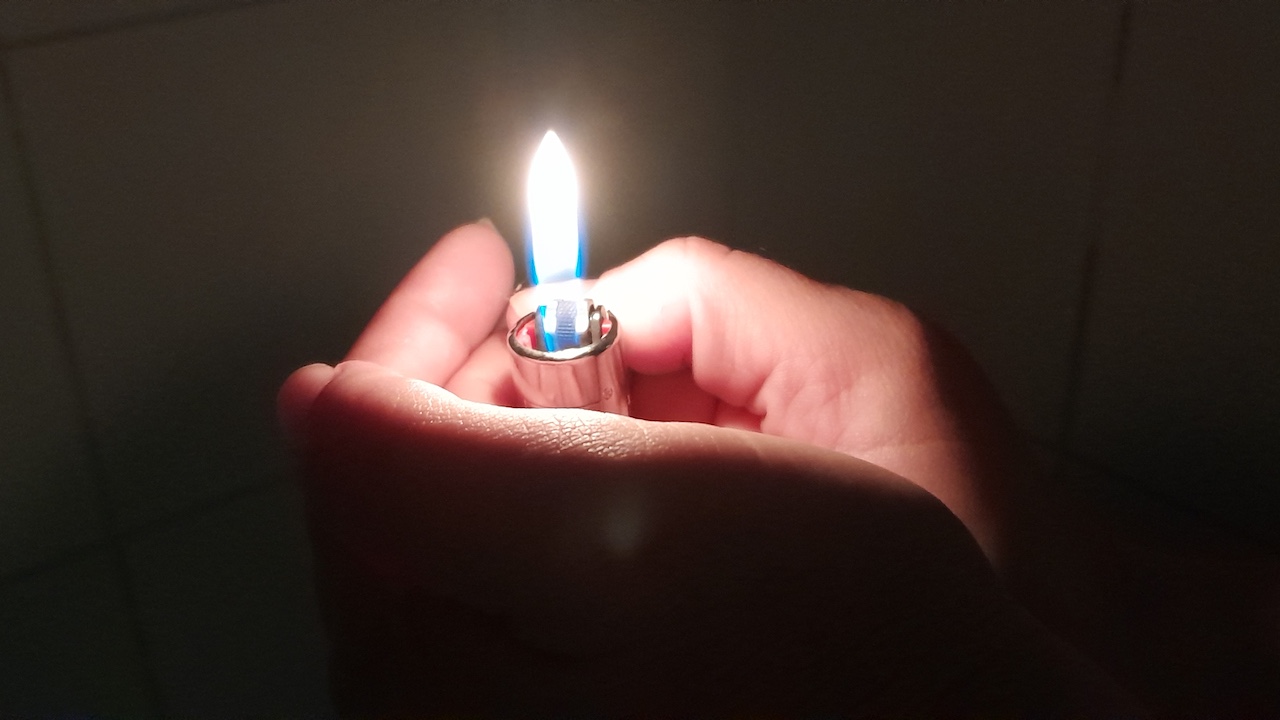The worsening of blackouts in Cuba, as a result of the country's rising energy shortages, has reached a critical juncture. Havana residents, drawing on their sarcastic sense of humor, propose "that the government stop charging for electricity, and start charging for blackouts, as in this way the gross domestic product will grow."
Despite the upbeat stoicism shown by some, the outlook for most Havana residents is tragic. Electricity service is interrupted for at least four hours daily, though there are areas where it's as high as six or eight hours, "sometimes consecutively and sometimes on and off, but on the same day."
"Another thing that makes everything worse is the heat. We're talking about temperatures exceeding 30 and 32 degrees, with a heat index of up to 38 degrees. All this in the midst of a severe drought. Imagine this situation without a fan," says El Cerro resident Nicolás Fornaris, visibly angry.
"There are details that we've already forgotten, because we Cubans tend to do that: how much does it cost to go to a pool, or to the beach, to escape the heat, now with the power outages? How much quality of life do you have to sacrifice? " Fornaris asks.
"When the blackouts strike at night, there is a respectful but tremendous envy for blind people, because you can't even afford to buy candles," says his wife, Ondina Saborit.
"The worst candles, which only last three hours, cost 100 pesos. The best ones range from 150 pesos to 200 pesos. What Cuban on a 2,000-peso retirement can afford the luxury of buying candles, when he barely has enough money to eat for a week?" Saborit snaps as he waves a makeshift cardboard fan.
A tour of Havana shops confirms the lack of candles at affordable prices. There is also nothing in the state's sale networks to "ease the people's suffering during those nighttime blackouts."
"Everything in this country, absolutely everything...the only place you can find it is on the black market, the cooperatives, or individuals," complains Tamara Arévalo, a Guanabacoa resident.
"You can't even afford to buy a rechargeable lamp so you can see something during the blackouts. You go from desperation to rage, and from there you wonder how long a government can last when it lies to you openly, and doesn't give a damn about how those of us Cubans who work for the State manage. On a State salary, we can only buy hunger and darkness," says Arevalo, who receives 4,600 pesos monthly.
Small lamps rechargeable via USB, depending on their lumens, cost between 3,600 and 7,500 pesos. With the current outages in Havana, an average family needs at least two of those lamps to alternate them and extend their useful life.
There are many Havana families that do not have access to a manufactured or liquefied gas service. Both have become precarious in recent years, despite the laughable statistics offered by the regime, forcing Cubans to resort to electric stoves.
But, in the midst of the current electricity generation crisis, which forces Cubans to remain aware of when blackouts are sure to hit their areas, buying an electric stove "is almost a suicidal act."
"It's a lose-lose situation, which is Cuba's natural state. I have no public gas, and no tank at home, like tens of thousands of families, and I have to learn the blackout calendar as if it were a final exam, to know when I can start cooking," says Lara Loyola, an Arroyo Naranjo resident and mother of two children.
"I have to juggle my work schedule, transportation schedule, and the blackout schedule. After solving that puzzle, I have to prioritize: go to work or cook. If I don't go to work, I don't get paid; if I don't get paid, I don't buy food, and my children and I starve. Has anyone in the government thought of that?" asks Loyola. To make matters even worse, her electric burner stove broke, and she had to go into debt to buy another one.
Electric burners range in price, depending on whether they have one or two burners, from 9,000 to 21,000 pesos. Even those Havana residents with relatives abroad, benefiting from remittances, and with small businesses, are severely affected by the worsening blackouts.
"My family can't afford to help me buy a generator to sustain the business, and the way the blackouts are now, no matter how small your business is, you need a generator," says Ariel Barquín, a Playa resident and the owner of a small cafeteria.
"The 10,000W and 15,000W generators cost $3,000 and $4,000, respectively. Not everyone who lives abroad can afford that. When those of us who receive remittances, or who have private businesses, are already having a hard time, just imagine what it must be like for those with no help. This Government no longer thinks about anything, nor do I think it cares. But they refuse to acknowledge that they lost control of the situation, a long time ago now, and Cubans can't be asked to make any more sacrifices," he concludes.
